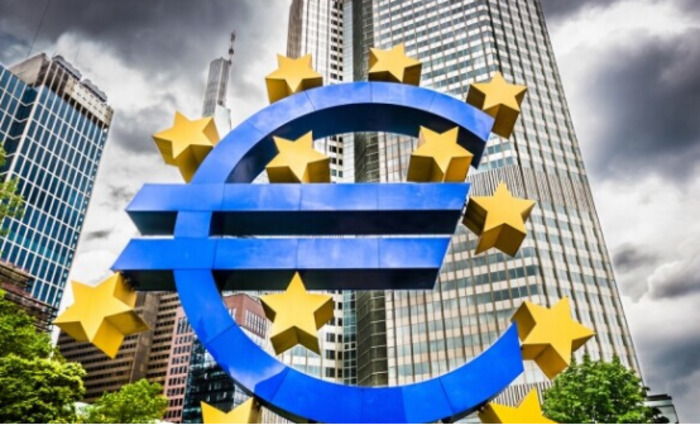Market expects mild recession in euro zone
 2022-12-28
2022-12-28
 1156
1156
[German bond yields rise to 2008 levels]
Euro zone government bond yields rose on Tuesday, with German two-year bond yields hitting a 14-year high, extending gains following hawkish comments at a European Central Bank meeting earlier this month. The European Central Bank slowed the pace of rate hikes at its December meeting, raising its key rate by 50 basis points, but signaled more significant tightening measures ahead as the bank seeks to bring sky-high inflation back to target. The yield on Germany's two-year government bond, which is most sensitive to changes in interest rate expectations, rose as high as 2.714%, the highest level since 2008. Germany's 10-year bond yield, the euro zone's benchmark, rose as much as 12 basis points to 2.507 percent, close to its peak of 2.532 percent reached in October 2011.
[Organization: Germany is expected to experience a mild recession early next year]
Despite headwinds from the energy crisis, raw material shortages and a global economic downturn, German companies expect only a mild recession next year, a survey of major associations showed. Economic activity may decline slightly in the last quarter of 2022 and early 2023, according to Lassworm, president of the Confederation of German Industries. There are growing signs that the German economy may avoid the worst of a recession triggered by a plunging energy supply. But Russwirm warned that German growth would remain subdued until 2024 as weak global demand hits the country's export-reliant economy. The DIHK said there were many signs that supply chain disruptions were gradually easing. But soaring energy prices and slowing consumer confidence still cloud the outlook for 2023.

[It is necessary to raise interest rates further until inflation returns to 2%]
European Central Bank Vice President Guindos: Further rate hikes are necessary until inflation returns to a trajectory close to the 2% target, given the current high level of uncertainty, we will make decisions at each meeting based on new data, we Macroeconomic forecasts point to a brief, mild recession in the euro zone by the end of the year. However, we expect the economy to return to positive growth from the second quarter of 2023, and to maintain this growth trend in 2024 and 2025, the economic outlook in the euro area has deteriorated, and inflation is more persistent than expected.
[Cloth oil will rise again in 2023]
We believe: “Oil prices will rise strongly again in the first half of 2023, as conditions in the oil market are likely to tighten significantly. From mid-year onwards, demand will once again exceed supply, and already low inventories will decline further. Therefore, we believe that the current The price weakness in China is short-lived and a sharp recovery is expected in the coming months. A barrel of Brent crude should once again reach $95 by mid-2023. In the event that prices do not recover, we expect OPEC+ to Further production cuts. In addition, the US government has announced its intention to replenish strategic reserves at around $70 for NYMEX crude oil. This should offset further declines in NYMEX crude futures prices."
[Accidents must be avoided in 2023]
The big market debate about 2023 has already begun: The Fed has said it expects to continue raising interest rates, but traders have been pricing in rate cuts. Company executives have warned of a potential recession, but economists at some institutions, including Goldman Sachs Group AG and Credit Suisse Group AG, believe the U.S. economy will avoid one in 2023. If there's a lesson to be learned from the past 12 months, some investors and analysts say, it's this: be prepared for more surprises.
[The Fed raises interest rates to increase borrowing costs]
Traditionally, the Fed raises rates to increase borrowing costs, weaken demand and make it more expensive for companies to hire and invest. Rising unemployment typically leads to lower wage increases, and vice versa. But this relationship between unemployment and wage growth -- known as the Philips curve -- has cracked in recent decades.
The above information is provided by special analysts and is for reference only. CM Trade does not guarantee the accuracy, timeliness and completeness of the information content, so you should not place too much reliance on the information provided. CM Trade is not a company that provides financial advice, and only provides services of the nature of execution of orders. Readers are advised to seek relevant investment advice on their own. Please see our full disclaimer.

CM Trade
As a world leading financial trading platform, CMtrade Provides comprehensive one-stop trading services and opportunities for traders.
[Products]
The platform provides over 32 kinds of popular financial products such as forex, precious metals, crude oil, indices, cryptocurrencies and more.
[System]
2 top trading systems CM Trade MT4 / CM Trade APP, powerful and easy to operate
[Service]
Comprehensive market news, professional market analysis, 7*24 hours online customer service
[Advantage]
Low cost, high leverage, flexible one-stop all day two-way trading.
[Authority]
Licensed and strictly regulated by authorities. Traders deposits are independently kept by the bank. Fast deposit and withdrawal. Fair, efficient and transparent trading environment.
CM Trade Mobile Application
Economics Calendar
MoreYou May Also Like



 简体中文
简体中文
 ภาษาไทย
ภาษาไทย
 繁體中文
繁體中文
 Indonesia
Indonesia











